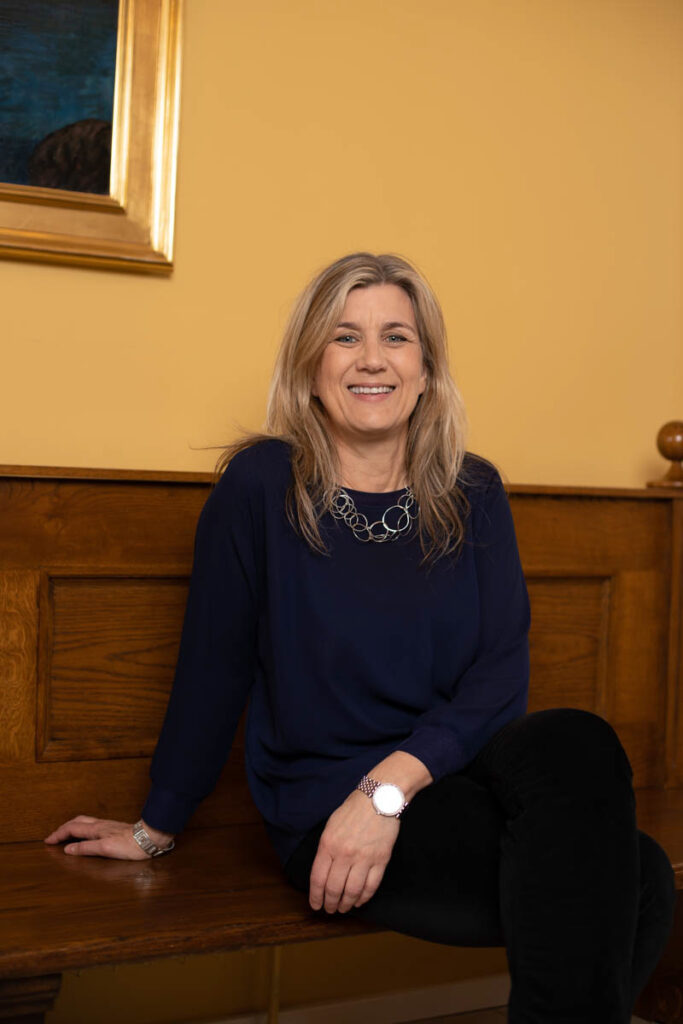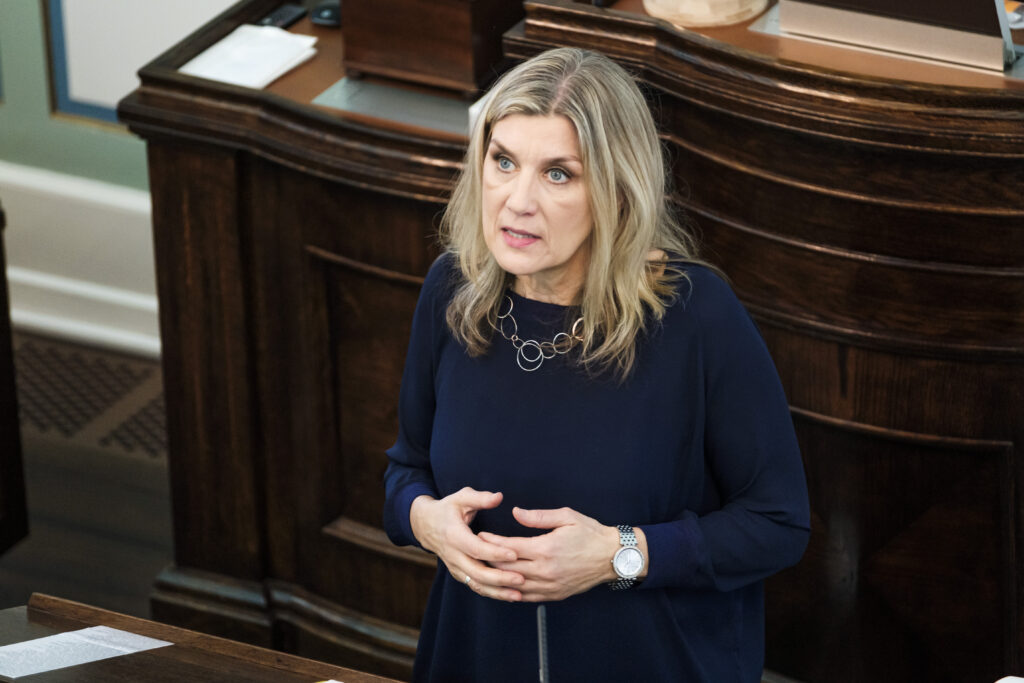A member of Iceland’s Liberal Reform Party (Viðreisn) has presented parliament with a bill that she hopes will protect queer people from the devastating effects of practices that aren’t based on scientific facts and are ‘morally wrong.’
For many queer people, the journey from childhood to adulthood is fraught with some incredible obstacles. As our individual identity starts to emerge, some of us start to realise that we are a little bit different to our peers. Often this feeling of difference is ever present because we don’t feel safe enough to admit these feelings. It takes a lot of courage to reveal to those in your life that you don’t fit into the prescribed categories that have been considered to be ‘the normal ones,’ but the environment a person grows up in also plays a significant role in how safe they feel revealing this information.
Humans have some very basic needs in order to survive and thrive. One of the most basic human needs is the need to feel safe and studies have shown that for many queer people, a lack of safety can have some very serious implications on physical and mental health. Many developed nations have made some serious strides towards rectifying the inequalities of the past and the immediate effects of these positive changes have been noted. For example, many countries experience a decrease in hate speech and homophobic attacks after governments change legislation to be more inclusive. This is a bit of an oversimplification but the figures seem to show that when a government takes an official stance against discrimination or abuse, positive change actually happens.
Recently in Iceland, one politician has been seeking to make a legislative change to benefit LGBTQI+ people. Hanna Katrín Friðriksson is a member of the Liberal Reform Party (Viðreisn) and recently introduced a bill to the Icelandic parliament (also known in Icelandic as Alþingi) seeking to ban conversion therapy in Iceland. But what exactly is conversion therapy? Why is Hanna Katrín seeking to ban it and why is it so important to her? GayIceland was lucky enough to sit down with Hanna Katrín to find out more.
GayIceland: You want the government to ban conversion therapy in Iceland, what prompted you to bring that up in parliament (Alþingi)?
“Iceland is one of the countries that is considered to be doing well in terms of the rights of LGBTIQ+ people, both legally and socially. Our Gender Autonomy Act from 2019 manifests the right for everyone to define one’s gender, for neutral gender registration and physical integrity.
This was of course a huge step, but there are still some improvements to be made in our legal environment. To ensure that conversion therapy becomes illegal is one of those important improvements.”
GayIceland: Does it have to do anything with the setbacks the LGBT+ community is currently experiencing in Iceland (and world wide)?

“It does, yes. As I said, Iceland has done well with the rights of LGBTIQ+ people. In my memory, for example, it seems like generations since queer people were forbidden to marry in Iceland. In fact, however, only 15 years have passed since a new marriage law came into force that allowed the marriage of two people of the same sex. For years before that we had to listen to doomsday predictions from opponents – that this would mean the end of civilization, no less.
Of course, disaster did not happen. The society is still full of heterosexual couples and now gay couples too, all kinds of couples in fact; thanks to LGBTIQ+ movements and others who fought the fight.
Now, however, we face another different prediction of doomsday because of trans people and nonbinary people. We have seen an increase in anti-queer rhetoric across media and politics – in particular against trans people. And unfortunately, Iceland is no exception here. The harsh propaganda that is hitting trans people these days strikes an uncomfortably familiar note for us.”
GayIceland: For those who have not heard of conversion therapy, what does that entail?
“Conversion therapy is when people are subjected to treatment to suppress and change their sexuality, gender identity or gender expression. Such treatments have been carried out in many places, both in Iceland and abroad, based on the belief that it is possible to “cure” people’s natural sexuality or gender identity.
“In more serious cases, the victim has also been subjected to more invasive treatments such as electroconvulsive therapy, hypnosis and even brain surgery.”
In such treatments, conversation is often used to connect the sufferer’s experience of sexuality, gender identity or gender expression with pain and shame. In more serious cases, the victim has also been subjected to more invasive treatments such as electroconvulsive therapy, hypnosis and even brain surgery. Such treatments are not supported by science, are morally wrong, and can have significant negative irreversible effects on the mental and physical health of people who undergo them. Children are particularly vulnerable to the negative effects of suppressive therapies.”
GayIceland: Has conversion therapy been practised in Iceland? Have you heard of instances where it is still being practised here?
“Yes it has. Even though I have not heard of the most invasive treatments being carried out here I know people who are still dealing with the consequences of being subjected to such torture, mental or physical.
And last year, the TV news commentary program ‘Kompás’ covered the concept of religious violence and spoke to former members of cults in Iceland. There, people described how prejudice against LGBTQI+ people is all-encompassing and the methods used to “drive away the sin”. People are systematically broken down until they begin to believe themselves that they don’t deserve anything good.”
GayIceland: How exactly would the ban tackle conversion therapy?
“The bill proposes that a new article will be added to the section of the General Penal Code, which deals with offences against human freedom. The provision makes it a criminal offense to subject a person to so-called conversion therapy by force, deception or threats, to subject a child to such treatment in Iceland or abroad, as well as to carry out conversion treatments, encourage or receive money for them.
Anyone who, through coercion, deception or threats, causes a person to undergo treatment for the purpose of conversing, suppressing or changing their sexuality, gender identity or gender expression shall be imprisoned for up to 3 years.

Anyone who subjects a child under the age of 18 to the treatment described in paragraph 1. shall be imprisoned for up to 5 years. The same punishment shall be imposed on anyone who brings a child under the age of 18 out of the country for the same purpose.
Anyone who carries out, directly or indirectly encourages or has received money for the treatment described in paragraph 1. shall be fined or imprisoned for up to 2 years.”
GayIceland: What has the general reaction been in parliament (Alþingi)?
“I have mainly gotten two reactions; ‘Is this really not already banned?’ or ‘Is it really necessary to ban this here in Iceland?’
The answers; no not yet – and – yes.”
GayIceland: A small group of people have protested the bill, did that surprise you?
“Unfortunately not really, no. The reason is mainly this anti-queer rhetoric that we are experiencing. Even though the focus of these anti-queer movements are now on trans people, the approach is the same as was used against gays and lesbians before. I am however glad to see how small and meaningless this group is.
But given the circumstances this bill is specially important for trans people. Research in the UK shows that trans people are at increased risk of being subjected to conversion therapies especially because there is still a lot of prejudice against trans people. All kinds of conflicting attitudes are allowed to rage unhindered and the worst attitudes are even systematically promoted.
“Even though the focus of these anti-queer movements are now on trans people, the approach is the same as was used against gays and lesbians before. I am however glad to see how small and meaningless this group is.”
I have to say that I am offended by the ridiculous accusations of this group that the bill means that health professionals are at risk of being sued if they don‘t do as they are asked when it comes to helping or treating trans children and trans people. Conversion therapy is much more complex and deeper than that, and involves conscious and repeated attempts to try to get people to stop being queer – whether through interviewing or other interventions (such as religious rituals, shock treatments or other forms of torture).
This bill is extremely important to ensure the safety of LGBTQI+ people, and the protests against it are based on prejudice, lack of understanding and fear of the unknown.”
GayIceland: Are you surprised that the protesters include members of the queer community?
“I’m more sad than surprised. But this only shows what powerful forces prejudice and fear can be.”
GayIceland: Are you optimistic that your bill will get a green light?
“I sense that there is a general will in parliament to approve this. The question is whether I can get it on the agenda. There is a long list of issues and a lot of competition. But I will seek the support of all parties and hopefully be successful.”
GayIceland: If so, when could we expect it to become law?
“As the bill is written, the law enters into force immediately after the approval of parliament.”

GayIceland: And finally, is there a reason you are personally passionate about this?
“As a member of the LGTBQI+ community myself, this is close to me. I know people that have been subjected to such terrible treatments that have affected their lives in a very negative way. Few, if any, of them are willing to speak openly about that horrific experience.
I am also an advocate of freedom; freedom of action, freedom of expression – freedom of being. The world has never faced the slightest threat from freedom, from people being free to be who they are. Luckily, most of us understand that it‘s really the other way around; the world becomes a better and a safer place when all are free to be who they are.
This bill is an important step to ensure freedom for people like us – and thus an important step towards a better world.”


